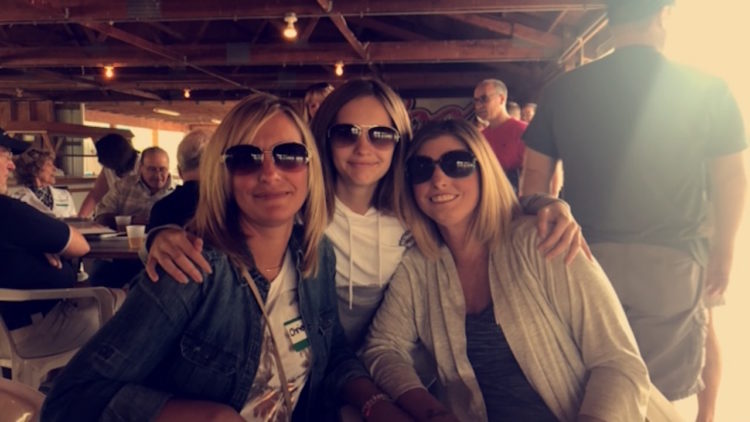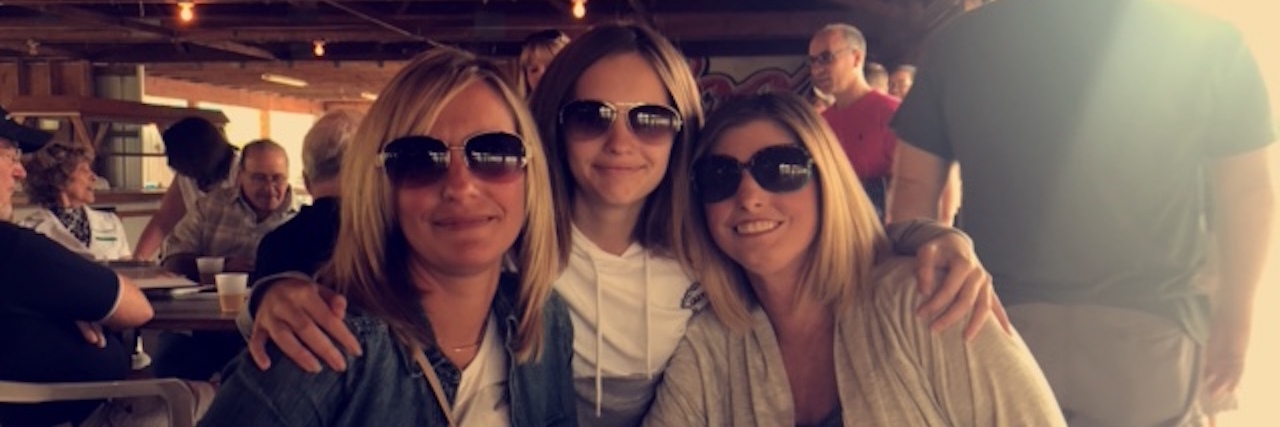As a young adult living with a rare chronic illness called scleroderma, I find it to be extremely challenging and at times frustrating even to be around my loved ones. I know that may sound very rude and selfish of me, be that as it may. Having lived with this disease most of my young adult life, I have found that dealing with family is a very challenging part of living with a chronic illness. Over the weekend I attended a family reunion and there were many people in attendance whom I have never met before or whom I have not seen since I was 5 or 6 years old. Which also means that more than half of these relatives have not seen me since way before I was diagnosed with scleroderma in 2001 at the age of 19 years old.
I was expecting a few stares and a few improper comments or questions. I think if you’re like me and are living with a chronic illness that has caused some changes in your appearance that are quite noticeable, you automatically prepare yourself for a few sideways glances and some whispers underneath people’s breath. It just comes with the territory.
Which is a major problem in itself! Why do we automatically expect people to talk down to us or look at us in strange ways? Why do we accept rude comments from not only strangers but our own relatives and chalk it up to “their lack of knowledge about the disease?” Is there no one left who has empathy towards another person anymore? I find it very frustrating that we as sick individuals feel we have to gear up for the worst in people. When I leave the house I almost put on mental armor to shield myself from strangers who constantly approach me with inappropriate questions like: “What happened to your arms? Is that a contagious rash?” or ” Why are your fingertips all gone? Did they get cut off in an accident?” Yes – those are real questions real people have asked me!
I find it at times unbelievable the brass of some people to approach a complete stranger and ask them a very personal and very inappropriate question as if they were asking the time. But what bothers me more is having that same type of incident happen to me but with a relative or friend. Surprisingly, at my family reunion, everyone was very respectful and kind. However, I can tell you this has not always been the case at other family functions, which is quite sad.
I do not expect strangers to understand or even try to relate to my feelings or my lack of self-confidence when it comes to certain parts of my physical appearance, but I would expect my family to at least have the decency to choose their words more carefully when enquiring about what my sickness has done to my appearance.
If I really stop and think about it, I seem to lean towards the age old answer of “people just do not get it!” And I’m afraid they never really will. Unless you are affected personally by a chronic illness of any kind, I do not think you can even understand how it feels to be looked at differently or spoken to with a total disregard for your feelings. I have even had medical personal at hospitals treat me like I was highly contagious and needed isolation! Instead of just simply asking me why my skin looks like I have a rash or why my arms and hands look so tight and shiny.
When I was first diagnosed it really bothered me that not only would strangers be able to pick out my physical flaws in the blink of an eye, but my own family did too. To be honest, the fact that they were able to notice a difference in my physical appearance didn’t bother me as much as the way they would boldly point it out to everyone in the room with a rude comment. That hurt me the most.
Now that I have been living with my chronic illness scleroderma for over 16 years, I have developed some “coping tools,” if you will, to take back control of my personal space and my emotions. First off, I always try to tell myself that a stranger’s ignorance is my opportunity to educate them about scleroderma and why my appearance is so different. The next thing I try to do is remember how uncommon and extremely rare scleroderma is and that is most likely why 90 percent of people who approach me have no idea what is wrong with me. If I try to keep that in the back of my mind it helps me to not take things so personally when someone says something rude or inconsiderate to me.

My coping tricks help me when I’m dealing with uncomfortable situations, but my mind always tends to wander to the same question of “Why can’t people, strangers or not, treat other people with a little more common courtesy?” Unfortunately, the answer to that question is far more rare than my chronic illness is.
We want to hear your story. Become a Mighty contributor here.

